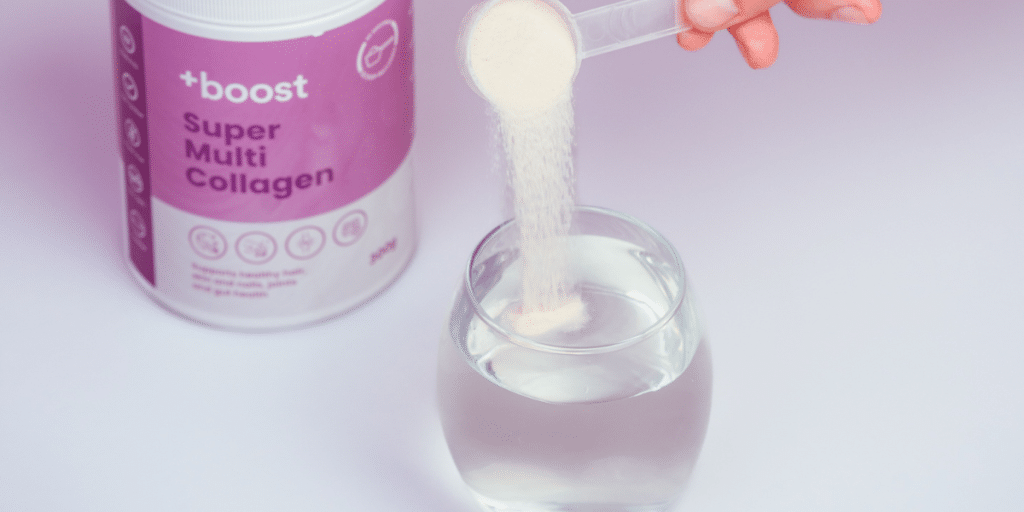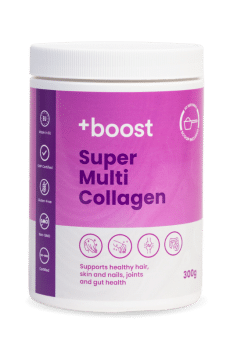Collagen isn’t just a singular entity; it’s a diverse family of related compounds, each with its distinct structure and role. Within this family, there are a total of 28 different types of collagen, but five of them stand out as the primary ones used in supplements in Malta. In this blog, we’re here to shed light on each of these key types of collagen available and explain why a comprehensive approach of combining them all in a multi collagen supplement offers unique advantages.
What is Collagen?
Let’s start with the basics: What is collagen, exactly? Collagen is the most prevalent protein in the human body, and it plays an integral part in the formation of our bones, skin, muscles, and ligaments. It is the very foundation of these buildings, giving them the strength, structure, and resilience they require to function properly.
However, collagen’s presence is not limited to these critical locations. It is found woven throughout different tissues, including tendons, gums, and even the delicate structures of the eyes. Its fibrous qualities give it the unique capacity to reinforce both hard and soft tissues, making it a crucial building block for sustaining the strength of our bodies.
Collagen also earns its place of importance by contributing to skin elasticity and plumpness. Healthy levels of collagen in the skin are like the scaffolding that keeps it looking firm and youthful. So, it’s no exaggeration to say that collagen is an integral player in our body.

What Are The Main Types of Collagen?
There are currently 28 different kinds of collagen known to exist. Their differences lie in how the molecules are put together, the extra cell components, and the bodily parts that require collagen. Every collagen fibril possesses a minimum of one triple helix configuration. The main types are Type I, Type II, Type III, Type V, and Type X.
Type I
- Type I collagen is the most abundant type in the human body.
- It is primarily found in the skin, tendons, bones, and connective tissues.
- Type I collagen is responsible for maintaining skin elasticity and firmness and supporting the strength of bones and tendons.
Type II
- Type II collagen is crucial for cartilage health and joint function.
- It makes up the major structural component of cartilage tissue.
- Supplementing with Type II collagen can help alleviate joint pain and support joint mobility, making it a valuable option for those with joint issues.
Type III:
- This Type of collagen is found in various parts of the body, including skin, blood vessels, and internal organs.
- Maintains the structure and integrity of these organs and tissues.
- Often associated with youthful, resilient skin.
Type V
- Type V collagen is less common but still contributes to overall structural integrity.
- It is typically found in hair and cell surfaces, where it supports their strength and structure.
- Including Type V collagen in a supplement can help improve hair strength and quality.
Type X
- Type X collagen is involved in the development and maintenance of cartilage.
- It is essential for the formation and growth of new cartilage tissue.
- While less commonly included in supplements, Type X collagen can benefit individuals with specific cartilage-related concerns.

Sources of Collagen
There are various ways to get collagen, but the two most popular ones are marine and animal-based supplements. These sources are good for supplements because they offer a variety of amino acids, which are the building blocks of collagen. A few of the sources are as follows:
Bovine Collagen (Cow):
- Derived from the skin and bones of cattle.
- A rich source of Type I and Type III collagen.
- Often used in supplements and skincare products.
Fish Collagen (Marine):
- Sourced from fish skin and scales.
- Provides Type I collagen.
- Suitable for those with dietary restrictions, as it is often considered kosher and halal.
Eggshell Membrane:
- The thin membrane is found between the eggshell and the egg white.
- Contains collagen, glucosamine, and chondroitin.
- Beneficial for joint health and flexibility.
Why should you choose a multi collagen powder?
+boost super multi collagen powder combines various collagen types into a single product, offering a broader range of benefits. With this supplement, you can address multiple aspects of your health, such as improving skin elasticity, reducing joint pain, promoting hair and nail strength, and supporting a healthy gut.
The synergistic effect of different collagen types and sources can provide a more comprehensive solution to counteract the signs of aging and maintain overall vitality.
How to take collagen powder
Taking unflavored collagen powder is simple. You can mix it into any drink like coffee, tea, water, or smoothies. Mix the recommended daily dose of 10 g (1 measuring scoop) with 200-300 ml of your preferred beverage. Store in a cool, dry place.
Since collagen is so versatile, you can also add +boost super multi collagen to your food. Try these three recipes.
Conclusion
Collagen powder, especially the +boost super multi collagen, is a powerful supplement that can boost your health and vitality in many ways. With the ability to improve skin, joints, hari, nails and gut, it makes sense that collagen has become increasingly popular in Malta as a safe, all-natural solution. Whether you’re looking for supplements in Malta or anywhere else in the world, embracing the benefits of collagen powder can be a transformative step towards a healthier, more youthful you. So why wait? Begin your collagen journey today and experience the remarkable improvements it can bring to your life.
Related Articles
3 Collagen recipes to try at home

